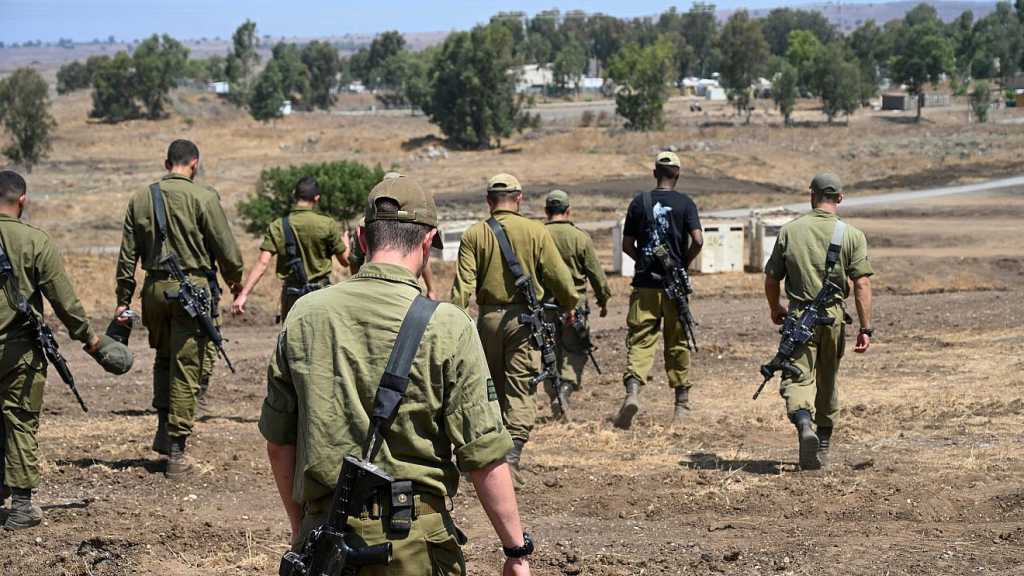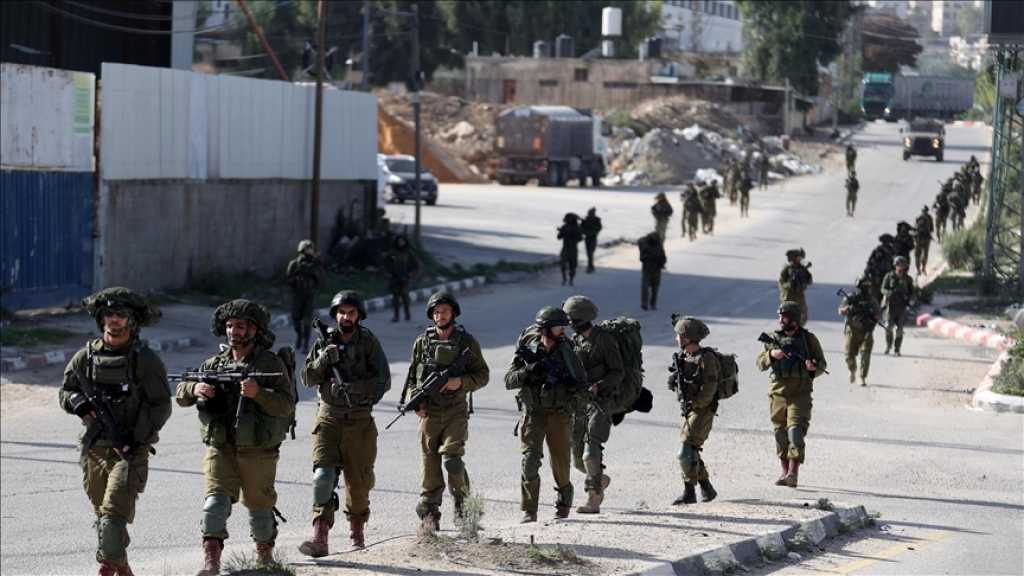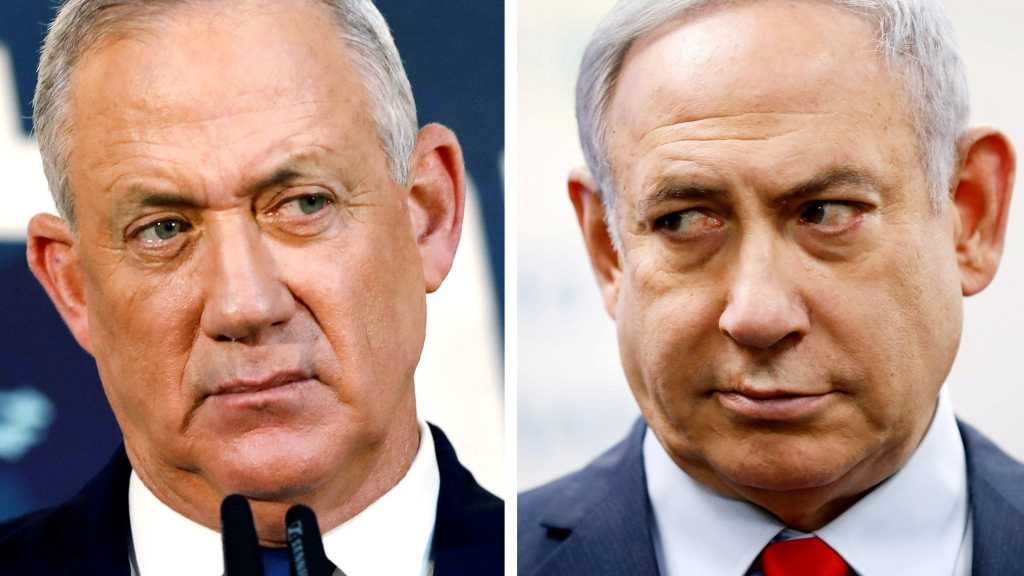
Inside the US-"Israel" lobby

Source: Al-Jazeera, 04-06-2008
By: Rob Winder in Washington DC
"Built to last" is the theme of this year's American-'Israeli' Public Affairs Committee (AIPAC) policy conference and the lobby group has made sure that the US-'Israeli' relationship has solid foundations.
Thousands flocked to the influential organization's annual conference in Washington DC on Tuesday to find an agenda dominated by one subject - Iran.
AIPAC has been accused of leading a push toward military action against Iran, much as it was accused of pushing the US to invade Iraq.
The Republican message from the three-day conference was clear.
Condoleezza Rice, the US secretary of state, described Iran as a "violent and extremist" state and called for Europe to do more to increase the diplomatic and economic pressure on the Islamic republic.
Rice said the US would not hold direct top-level talks with Tehran "while they continue to inch closer to a nuclear weapon under the cover of talk".
An 'unacceptable risk'
Mitch McConnell, the leader of Republicans in the senate, went even further:
"What we are doing now is not pushing military action, but rather we are wishing and hoping that Iran will respond positively by opening up diplomatic avenues with us"
Aliza Fischbein, student and AIPAC supporter
"Dealing with the Iranian threat will not be easy. Yet one thing is clear: The old tools of diplomacy are not sufficient," he said.
"If Iran wants to be treated like a nation-state, it needs to act like one, by cutting its ties to murderous non-state actors."
John McCain, the presumptive Republican presidential candidate, had also targeted Tehran during the previous day's speeches, arguing that Iran's "continued pursuit of nuclear weapons" posed an "unacceptable risk".
Critics of George Bush's administration have charged that it was language similar to this that provided the backdrop to the build-up to the invasion of Iraq.
But AIPAC and its supporters are keen to state that they are only pushing for increased economic sanctions against Iran - at this stage.
"What we are doing now is not pushing military action, but rather we are wishing and hoping that Iran will respond positively by opening up diplomatic avenues with us," Aliza Fischbein, a student from the US state of Maryland and a supporter of AIPAC told Al Jazeera at the conference.
"What we are supporting here is possibly expanding sanctions to pressure Iran to have those conversations."
"AIPAC's approach is not militaristic at all and AIPAC advocates taking strong political positions [on Iran]," said another 32-year-old attendee from Boston who did not want to give his name.
Christian link
The 'Israel' lobby is made up of dozens of political action committees that draw a large part of their support from the US Jewish community and provide funding to presidential candidates.
In focus
But Christian Zionists, who are among the strongest supporters of 'Israel' in the US, also play a major role.
They believe that by supporting the state of 'Israel', they can bring about the "second coming" of Jesus as prophesied in the Bible.
More than 7,000 people have participated in the conference, AIPAC says, with about 5,000 going to lobby US politicians on the final day on Wednesday.
AIPAC says the conference will be attended by more members of the US Congress than almost any other event, a sign of its influence in the US political system.
'Shared values'
This year the organisation is attempting to reach beyond its Jewish base, amid continuing criticism that it is out of touch with the views of the Jewish community in the US.
Surveys have repeatedly shown, for example, that about 70 per cent of US Jews are opposed to the war on Iraq, despite AIPAC's support of military action.
A promotional video shown at the conference highlighted what it says is the support of the US's relationship with 'Israel' from Hispanic and African-Americans.
But the bulwark of AIPAC's support still comes from those who believe that shared values bind the US and 'Israel' together.
"The US has a democratic ally in the Middle East and 'Israel' is an inspiration to the American people - what we faced during our revolution in 1776 they are facing now," Harvey Kaplan, a retired psychologist from New York, told Al Jazeera.
New administration
While no-one is questioning the nature of the US and 'Israeli' relationship in the near future, a period of uncertainty is approaching for politicians in both countries.
Obama's stance on 'Israel' and Iran has worried some AIPAC supporters [GALLO/GETTY]
Ehud Olmert, the 'Israeli' prime minister, has once again been accused of corruption and is facing calls to step down, leaving 'Israelis' to face another election.
The Bush era comes to end in January 2009 and 'Israeli' leaders will have a new administration and new policies to deal with.
McCain is a staunch supporter of 'Israel' and is likely to make few immediate changes, but a Barack Obama government would pose a new set of challenges.
The Illinois senator, who has said he could negotiate with Iranian leaders, has worried some AIPAC supporters by commenting on the suffering of the Palestinians.
Conference organisers, concerned about the reaction Obama could receive when he speaks on Wednesday, sent out a letter urging attendees to react to speeches in a positive manner after Nancy Pelosi, the speaker of the House of Representatives, was booed at last year's event for calling the war in Iraq a failure.
But with Obama on the verge of clinching the US Democratic nomination, it seemed unlikely that he would be booed in his first speech as the presumptive candidate.
By: Rob Winder in Washington DC
"Built to last" is the theme of this year's American-'Israeli' Public Affairs Committee (AIPAC) policy conference and the lobby group has made sure that the US-'Israeli' relationship has solid foundations.
Thousands flocked to the influential organization's annual conference in Washington DC on Tuesday to find an agenda dominated by one subject - Iran.
AIPAC has been accused of leading a push toward military action against Iran, much as it was accused of pushing the US to invade Iraq.
The Republican message from the three-day conference was clear.
Condoleezza Rice, the US secretary of state, described Iran as a "violent and extremist" state and called for Europe to do more to increase the diplomatic and economic pressure on the Islamic republic.
Rice said the US would not hold direct top-level talks with Tehran "while they continue to inch closer to a nuclear weapon under the cover of talk".
An 'unacceptable risk'
Mitch McConnell, the leader of Republicans in the senate, went even further:
"What we are doing now is not pushing military action, but rather we are wishing and hoping that Iran will respond positively by opening up diplomatic avenues with us"
Aliza Fischbein, student and AIPAC supporter
"Dealing with the Iranian threat will not be easy. Yet one thing is clear: The old tools of diplomacy are not sufficient," he said.
"If Iran wants to be treated like a nation-state, it needs to act like one, by cutting its ties to murderous non-state actors."
John McCain, the presumptive Republican presidential candidate, had also targeted Tehran during the previous day's speeches, arguing that Iran's "continued pursuit of nuclear weapons" posed an "unacceptable risk".
Critics of George Bush's administration have charged that it was language similar to this that provided the backdrop to the build-up to the invasion of Iraq.
But AIPAC and its supporters are keen to state that they are only pushing for increased economic sanctions against Iran - at this stage.
"What we are doing now is not pushing military action, but rather we are wishing and hoping that Iran will respond positively by opening up diplomatic avenues with us," Aliza Fischbein, a student from the US state of Maryland and a supporter of AIPAC told Al Jazeera at the conference.
"What we are supporting here is possibly expanding sanctions to pressure Iran to have those conversations."
"AIPAC's approach is not militaristic at all and AIPAC advocates taking strong political positions [on Iran]," said another 32-year-old attendee from Boston who did not want to give his name.
Christian link
The 'Israel' lobby is made up of dozens of political action committees that draw a large part of their support from the US Jewish community and provide funding to presidential candidates.
In focus
But Christian Zionists, who are among the strongest supporters of 'Israel' in the US, also play a major role.
They believe that by supporting the state of 'Israel', they can bring about the "second coming" of Jesus as prophesied in the Bible.
More than 7,000 people have participated in the conference, AIPAC says, with about 5,000 going to lobby US politicians on the final day on Wednesday.
AIPAC says the conference will be attended by more members of the US Congress than almost any other event, a sign of its influence in the US political system.
'Shared values'
This year the organisation is attempting to reach beyond its Jewish base, amid continuing criticism that it is out of touch with the views of the Jewish community in the US.
Surveys have repeatedly shown, for example, that about 70 per cent of US Jews are opposed to the war on Iraq, despite AIPAC's support of military action.
A promotional video shown at the conference highlighted what it says is the support of the US's relationship with 'Israel' from Hispanic and African-Americans.
But the bulwark of AIPAC's support still comes from those who believe that shared values bind the US and 'Israel' together.
"The US has a democratic ally in the Middle East and 'Israel' is an inspiration to the American people - what we faced during our revolution in 1776 they are facing now," Harvey Kaplan, a retired psychologist from New York, told Al Jazeera.
New administration
While no-one is questioning the nature of the US and 'Israeli' relationship in the near future, a period of uncertainty is approaching for politicians in both countries.
Obama's stance on 'Israel' and Iran has worried some AIPAC supporters [GALLO/GETTY]
Ehud Olmert, the 'Israeli' prime minister, has once again been accused of corruption and is facing calls to step down, leaving 'Israelis' to face another election.
The Bush era comes to end in January 2009 and 'Israeli' leaders will have a new administration and new policies to deal with.
McCain is a staunch supporter of 'Israel' and is likely to make few immediate changes, but a Barack Obama government would pose a new set of challenges.
The Illinois senator, who has said he could negotiate with Iranian leaders, has worried some AIPAC supporters by commenting on the suffering of the Palestinians.
Conference organisers, concerned about the reaction Obama could receive when he speaks on Wednesday, sent out a letter urging attendees to react to speeches in a positive manner after Nancy Pelosi, the speaker of the House of Representatives, was booed at last year's event for calling the war in Iraq a failure.
But with Obama on the verge of clinching the US Democratic nomination, it seemed unlikely that he would be booed in his first speech as the presumptive candidate.

“Israel” Pulls Golani out of Gaza Quagmire
3 months ago
Knesset Member: ‘Israel’ Facing Economic Disaster
3 months ago
